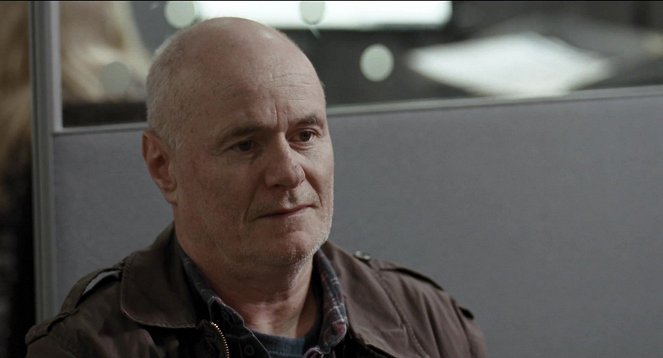Réalisation:
Ken LoachScénario:
Paul LavertyPhotographie:
Robbie RyanMusique:
George FentonActeurs·trices:
Dave Johns, Hayley Squires, Briana Shann, Dylan McKiernan, Andy Kidd, Micky McGregor, Malcolm Shields, Harriet Ghost, Stephen Clegg, Kate Rutter (plus)VOD (3)
Résumés(1)
Pour la première fois de sa vie, Daniel Blake (Dave Johns), un menuisier anglais de 59 ans, est contraint de faire appel à l'aide sociale à la suite de problèmes cardiaques. Mais bien que son médecin lui ait interdit de travailler, il se voit signifier l'obligation d'une recherche d'emploi sous peine de sanction. Au cours de ses rendez-vous réguliers au « job center », Daniel va croiser la route de Rachel, mère célibataire de deux enfants qui a été contrainte d'accepter un logement à 450km de sa ville natale pour ne pas être placée en foyer d'accueil. Pris tous deux dans les filets des aberrations administratives de la Grande-Bretagne d'aujourd'hui, Daniel et Rachel vont tenter de s'entraider... (Le Pacte)
(plus)Critiques (5)
I, Daniel Blake starts out as one of Loach’s most powerful films. The octogenarian standard-bearer of British left-wing cinema directs with admirable precision and economy, though it may seem that he is primarily trying not to get in the way of the actors’ work. He gradually interconnects the protagonist’s story with those of the supporting characters (Katie, Chino), thus inconspicuously pointing out how important people like Daniel Blake, who don’t live solely for themselves, are in uniting a community. As if by accident, the camera sometimes takes in anonymous people waiting at an office who find themselves in a similar situation as Blake, thus drawing attention to the widespread nature of the issue being examined in the manner of neorealist films. Also, the choice of setting on both a larger (Newcastle) and smaller scale (Blake standing incongruously in front of a display window with luxury goods) reveals the director’s sensitivity and talent for conveying meaning in a slightly roundabout way. Despite the melancholy subject matter, the film is greatly helped by humour from the beginning. Dave Johns, who otherwise makes his living as a stand-up comedian, has precise comedic timing and I easily could have spent an hour and a half listening to his increasingly clueless communication with robotically thinking officials. But as Blake’s humour abandons him, Loach also loses his ability to maintain distance and starts pushing the situation to extremes. I have no doubt that he proceeded based on field research and interviews with unemployed people, but in this concentrated form, the unhappiness and desperate behaviour occurring all at once (the freezing children, the food bank, Ivan, vandalism, the final scene) are unnaturally excessive. The attempt to support the thesis that bureaucracy is harmful to both mental and physical health gradually takes precedence over perceptiveness toward the characters and the film becomes exceedingly literal in its attack on the system. It suddenly becomes too obvious what the director is reaching for and thus harder to accept. Of the recent dramas about dehumanised and dehumanising capitalism, I, Daniel Blake, despite all of its qualities, thus remains in my view a few steps behind the brutally blunt The Measure of a Man and the more well-constructed Two Days, One Night.
()
It's not Loach's best film; it's a semi-political statement that, when reading Laverty's screenplay, struck me as difficult to digest with its final appealing pathos. But Loach directed it completely civilly, chose great protagonists, and settled it with a slight irony, although, of course, the harsh indictment of a mechanized social system dominates, in which a person becomes an indecent item. The result is a difficult view of poverty, which potentially affects each of us because it is a malignant part of the system in which we live. Paradoxically, Loach must be criticized and appreciated for the consistency with which he easily idealizes his working heroes - there is nothing distorted and inauthentic about it, and there is an almost naive belief in the good of those in need. I, Daniel Blake is the best Loach since 2006, and I personally feel that this is a more vital and substantial film than The Wind That Shakes The Barley. [Cannes 2016]
()
Awesome! I really enjoyed I, Daniel Blake because it deals with a topic that is more than close to my heart. To my surprise, British officials and laws are even more inhumane than ours. I also went through an interesting process when sorting out my disability pension and card. However, compared to Daniel's ordeal, it was a walk in the park. I only got stuck in a loop once and thankfully not for long. The film took me through such a wonderfully depressing story that I delved into it completely, staring open-mouthed. Dave Jones was perfectly natural as the knight without fear and beyond reproach, battling the windmills, and I believed him every word he said. Hayley Squires complemented him perfectly with her despair. I was thrilled!
()
It's almost tempting to say that it's just an ordinary film about how life can be complicated sometimes, but it turns out that when it's well-directed and well-acted, it will have the right effect. And it does. Ken Loach hasn't aged a bit, and being 80 in the director's chair isn’t a bad thing at all. Civil, yet great.
()
Ken Loach is one of the best creators of social dramas and with this film, he has strengthened his unwavering position. The appalling, dignity-devouring bureaucratic machinery into which Daniel Blake was thrust when he lost his job due to illness and struggled to remain financially independent could not possibly be real. I am afraid, however, that this is the way things truly are at the moment. And not just in England, as it's probably similar in most "civilized" countries. While the film does have a few light moments, overall it's a heavy, frustrating, and depression-inducing experience.
()

